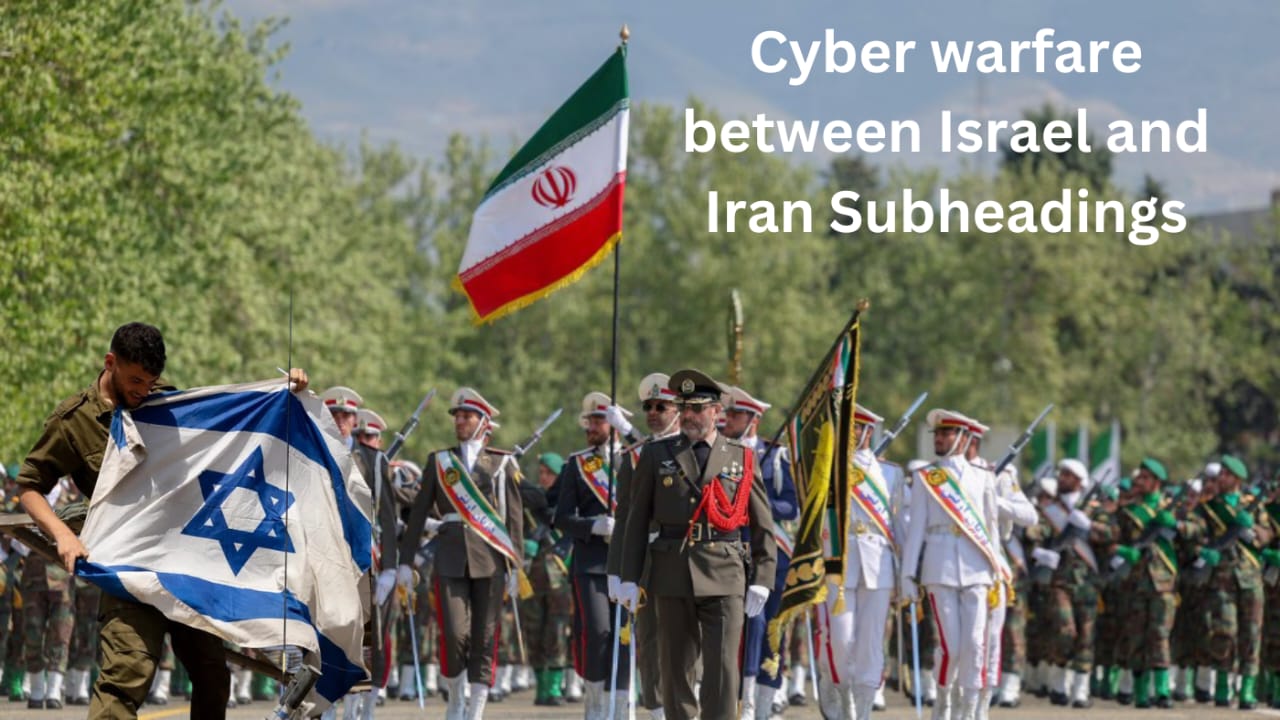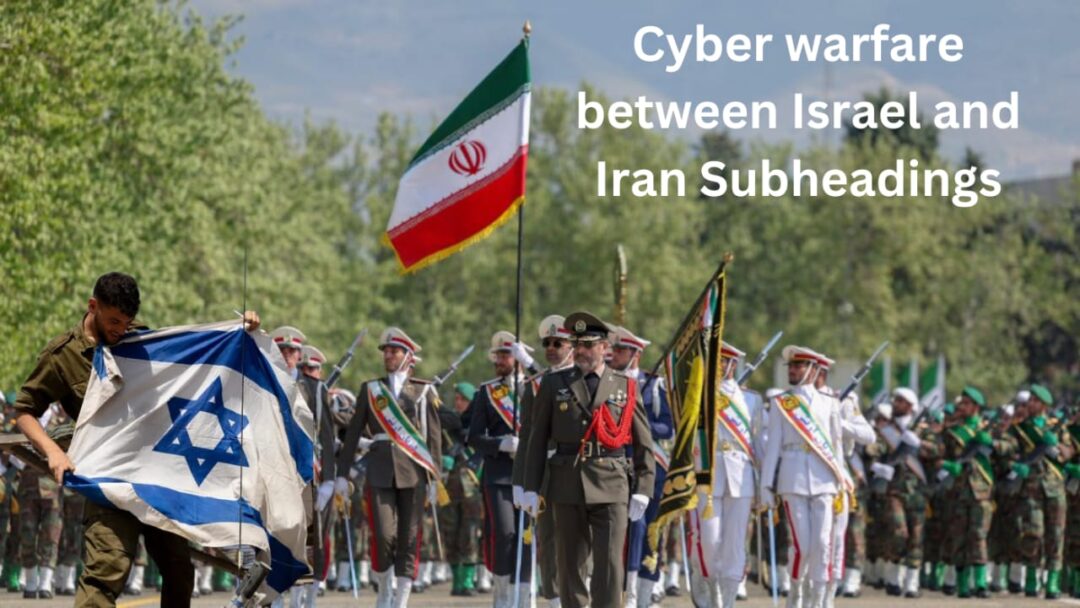Physical Address
304 North Cardinal St.
Dorchester Center, MA 02124

Israel has long been at the forefront of cyber security, leveraging its technological capabilities to defend against cyber threats, especially from Iran. In 2024, Israel has further developed its cyber defense strategy, focusing on pre-emptive measures, real-time monitoring, and robust defense systems. Central to its strategy is the Israel National Cyber Directorate (INCD), responsible for securing national infrastructure, including energy, water, transportation, and healthcare sectors, all of which are prime targets for Iranian Cyber Warfare Between Israel and Iran attacks.
Israel also employs AI-driven cyber security tools, utilizing machine learning to predict and identify potential cyber threats before they materialize. These advanced systems analyze vast amounts of data to detect unusual patterns and preemptively shut down attacks. Additionally, Israel’s cyber security forces, particularly Unit 8200, conduct offensive cyber operations aimed at neutralizing Iranian cyber capabilities.
The Israeli government collaborates closely with private tech companies and cyber security startups, a vital part of Israel’s cyber ecosystem, fostering innovation in cyber defense mechanisms. Regular cyber drills and simulations are conducted, preparing both the public and private sectors for potential large-scale attacks.
The United States plays a pivotal role in the ongoing cyber conflict between Israel and Iran. Since 2020, the US has been a key partner in Cyber Warfare Between Israel and Iran intelligence sharing with Israel, particularly through its Cyber Command (USCYBERCOM). In 2024, this partnership has grown stronger, with real-time exchanges of information on Iranian cyber activities, including malware signatures, intrusion techniques, and attack patterns.
In addition to intelligence support, the US has also provided Israel with cutting-edge cyberdefense technologies, such as advanced firewalls, AI-powered detection systems, and quantum encryption tools. These technologies are designed to protect Israeli networks from Iranian attacks while also improving the detection and response capabilities of Israel’s cyber defense forces.
Moreover, the US conducts its own offensive cyber operations against Iranian infrastructure, often targeting Iran’s nuclear program, military communications, and command-and-control systems. These cyber strikes, while covert, are part of a larger US-Israeli coordinated effort to deter Iran’s aggressive Cyber Warfare Between Israel and Iran behavior. US diplomats also work to build international coalitions to condemn Iranian cyber actions and enforce sanctions aimed at limiting Iran’s ability to fund and develop its cyber warfare capabilities.
The cyber warfare between Israel and Iran has global repercussions, particularly concerning the security of critical infrastructure in countries worldwide. Iranian hackers, often linked to the Islamic Revolutionary Guard Corps (IRGC), have been accused of carrying out attacks on foreign nations, targeting everything from energy grids to financial systems.
In 2024, these attacks have extended beyond the Middle East, with Iranian cyber units allegedly launching ransom ware and data breaches on European and Asian financial institutions, aiming to disrupt global financial stability. The effects are felt globally as Cyber Warfare Between Israel and Iran insurance costs rise and countries increasingly turn to defensive Cyber Warfare Between Israel and Iran security measures to protect their national assets.
Israel’s response to IranianCyber Warfare Between Israel and Iran attacks also has significant implications. Its cyber counter-attacks and offensive operations often target not just Iran but also Iranian proxy networks worldwide. This escalation poses a significant risk to global cyber security stability, as retaliatory strikes could target the allies and businesses of both nations, leading to broader conflicts.
International organizations, such as Interpol and NATO, are also becoming more involved in coordinating a global response to these threats. They provide support through cyber task forces and help set up frameworks for countries to better cooperate on cyber security matters.

Looking forward, cyber warfare between Israel and Iran is expected to intensify. Both nations have invested heavily in cyber capabilities, and the conflict has evolved into a critical front in their broader geopolitical rivalry. With AI, quantum computing, and 5G becoming more prevalent in cyber warfare, both countries are enhancing their technological arsenals to outpace one another.
Iran, in particular, has been bolstering its cyber warfare division. As its economy suffers from international sanctions, Iran views Cyber Warfare Between Israel and Iran as a low-cost but highly impactful way to strike at its adversaries. Israel, on the other hand, is likely to expand its offensive cyber operations, preemptively targeting Iranian infrastructure to mitigate future attacks.
In this evolving landscape, Israel and Iran’s cyber conflict is unlikely to remain a regional issue. Cyber proxies – third-party nations and organizations acting on behalf of Israel or Iran – are expected to play a bigger role. This could lead to a more complex geopolitical dynamic, where conflicts spread across digital spaces with various state and non-state actors involved.
The ongoing cyber warfare between Israel and Iran has shaped the global cyber security landscape in profound ways. Israel’s highly advanced defense mechanisms and offensive cyber capabilities continue to stand as a formidable barrier against Iran’s persistent cyber attacks. Meanwhile, the US plays a crucial supportive role, both in sharing intelligence and in leading offensive strikes against Iranian infrastructure. As Cyber Warfare Between Israel and Iran conflicts intensify in 2024, global powers and international organizations are increasingly drawn into the fold, making it clear that the Israel-Iran cyber struggle is far from an isolated regional issue.
Looking ahead, the conflict shows no signs of abating, and the introduction of newer technologies like AI and quantum computing will likely raise the stakes. For Israel and Iran, cyber warfare has become not only a tool for national security but also a key battleground for asserting their dominance in the region and beyond.
Israel National Cyber Directorate (INCD) official reports
U.S. Cyber Command (USCYBERCOM) statements
Reports from global cyber security firms (e.g., Fire Eye, Crowd Strike)
Studies on the cyber security capabilities of Iran’s Islamic Revolutionary Guard Corps (IRGC)
Global media outlets: Reuters, The Jerusalem Post, Al Jazeera, and others
1. What is the main reason for the cyber conflict between Israel and Iran?
The main reason is geopolitical rivalry, especially over Iran’s nuclear ambitions and its support for hostile groups in the Middle East.
2. How does Israel protect itself from Iranian cyber attacks?
Israel uses advanced AI-driven cyber security systems, intelligence sharing with allies, and offensive cyber operations to neutralize threats.
3. Has the US directly intervened in the cyber warfare between Israel and Iran?
Yes, the US has conducted offensive cyber operations targeting Iranian infrastructure and provides Israel with technological and intelligence support.
4. What are the global impacts of this cyber warfare?
The conflict affects global financial systems, critical infrastructure security, and leads to higher costs in cyber security for nations worldwide.
5. How do international organizations respond to the cyber conflict?
Organizations like NATO and Interpol assist with global cyber threat intelligence sharing and setting international standards for cyber security defense.
6. Is the cyber conflict between Israel and Iran a new development?
No, this conflict has been ongoing for years, but it has intensified in 2024 with advancements in cyber capabilities on both sides.
7. What kind of cyber attacks does Iran usually carry out?
Iran is known for launching attacks on critical infrastructure, such as energy grids, water systems, and financial institutions, both regionally and globally.
8. How does the conflict impact regular citizens in both countries?
Citizens may face disruptions in essential services such as electricity and water, as well as potential exposure to ransom ware attacks.
9. Can the cyber conflict escalate into a full-scale war?
While cyber attacks are disruptive, they are often kept below the threshold of full-scale war, though they can contribute to rising tensions.
10. What is the outlook for the cyber conflict in 2024 and beyond?
The conflict is expected to escalate with both sides continuing to invest in more sophisticated technologies like AI and quantum computing to outmaneuver each other.
Bottom of Form